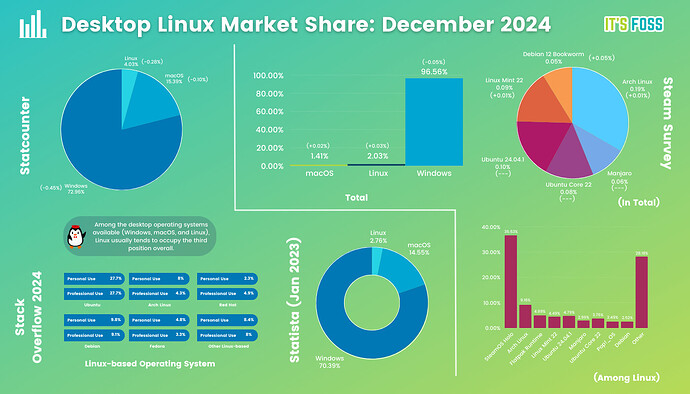Hello everyone,
I am a Spanish biologist specialized in literature and animal rights who has been writing novels for more than 10 years. Now, despite my health problems, I am concentrating on the final revision of my first novel. I emailed about this three weeks ago with no response. I know this is the umpteenth time someone has raised this issue. However, I’d like to give some reasons why Literature and Latte should try again to release a native version of Scrivener for Linux.
In advance, I appreciate the enormous technical quality of your/their program. The Windows version is already almost as polished as the Mac version despite coming many years later.
After 8 long years, Literature and Latte still hasn’t released an official native version for Linux. Since then, I’ve been using version 1.9.0.1, which they kindly provided for free as “compensation”. Unfortunately, it matters little that the versions of Windows work relatively well in Wine. There is no integration with the system nor can full functionality be assured. Relying on third-party programs is not a solution or a show of respect to potential customers.
It’s really a shame that Literature and Latte hasn’t been tried again after all this time. I know that it is a small company that must focus on the general public and I also know that the writers who use free (as freedom) operating systems are a minority, that’s true. However, there are also people like me, young and old, who are looking for professional tools to make their writing easier without being tied to Microsoft or Apple.
Literature and Latte has stated on numerous occasions that developers and writers should be able to receive a living wage for their work. This is just as valuable as the fact that a writer or aspiring writer doesn’t have to buy an expensive MacBook or Windows license just to be able to write with a professional tool. A decade ago, a student in his twenties who was starting to write a novel told me that he had to buy a MacBook in order to use your program. I felt perplexed. In addition, not everything is reduced to spending or investment, but to a matter of moral principles. Windows and Mac have abusive dependency, DRM, and vendor-lock policies. This is, by definition, contrary to creative freedom.
Although the percentage of users in Linux remains low, around 2%. The number of devices has increased enormously in the last 10 years. This means that it is not being evaluated that there will be a higher number of sales. Today there are Chromebooks and a greater interest in Linux by older people tired of Windows due to changes in its interface and worse policies.
The Windows version is built on the cross-platform Qt framework. It should be “relatively easy” to port the code to Linux and the extra expense would be very small compared to building the Windows version from scratch. The only real pitfalls can be two: the dependence on third parties for the management of purchased licenses and the hypothetical cost of support.
It is well known that Linux users are, on average, more computer literate than users of other platforms. This is due to a simple skill filter. Sometimes, Linux users have the support of family and friends who often act as technical support. It is very unlikely that a Linux user will cause support costs. I have never contacted any company in my life, except to ask them to assess the possibility of supporting my daily work platform.
On the other hand, there is a lack of belief that any form of customer service is negative. Since the Linux version shared the same code base as the Windows version, most of the bugs would be shared on both platforms. Linux users, by statistics, report and collaborate much more when it comes to tracking down and fixing bugs. Even indie game developers appreciate that when they release their Linux versions. Can an indie developer offer more support or invest more in maintenance than a leading company in its market niche? I doubt it.
On the other hand, as a writer, I recently saw how the Spanish translation was working in the Windows version (which I don’t use). The translation needs to be improved. It caught my attention that the “Scratchpad” menu was translated as “Rasca y Pica”. That doesn’t make sense at all. “Rasca y Pica” (“Itchy and Scratchy”) is the name of the cat and mouse from The Simpsons.
From an international point of view, the fact that a translation of a professional program can be greatly improved (after so many years on the market) indicates a lack of interest or responsibility on the part of your clients, who are usually professionals in translation and in linguistic and literary matter.
In summary, for me a Linux version would be an immediate purchase, a must-have with successive renewals. It would also be (or would have been) for many of those who bought the version for Windows but do not appear in the statistics. In fact, if your company released a native version for Linux, I would be delighted to correct the Spanish translation for free. I have experience in program translation with Qt linguist. I have participated in the translation of well-known free projects, such as LibreOffice, OnlyOffice, Nextcloud, Wordpress, Goldendict, Calibre, Transmission, Calamares, the KDE project, some free games, etc., including your “free competitor”: Manuskript.
Regards.

